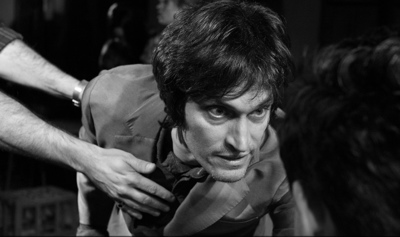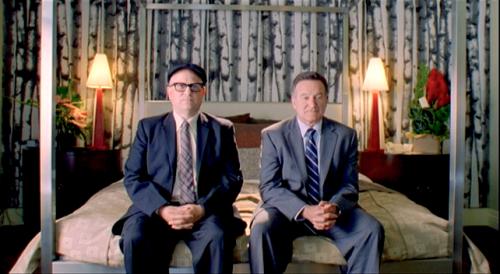The Cedar Lee Theatre opens two new films this weekend. Here are our reviews.
Tetro Francis Ford Coppola’s follow-up to his virtually unwatchable 2007 debacle Youth Without Youth is the 70-year-old director’s finest work in almost two decades. Working from Coppola’s first original screenplay since 1974’s
The Conversation, this grandly operatic tale of two siblings (a remarkably, impressively restrained Vincent Gallo and sensational newcomer Alden Ehrenreich) with daddy issues (Klaus Maria Brandauer plays their imperious orchestra-conductor father) is both loving homage to the heady days of the French New Wave and a glorious throwback to the kind of tempestuous Oedipal dramas Hollywood vets Nicholas Ray and Elia Kazan made back in the 1950s. Spectacularly shot in widescreen, cinematographer Mihai Malaimare Jr.’s high-contrast, black-and-white digital video images are a feast for the senses. Co-starring
Y Tu Mamá También’s Maribel Verdú (terrific as Gallo’s pragmatic common-law wife) and Almodóvar diva extraordinaire Carmen Maura, it’s a self-contained film festival. Anyone who cares about the state of world cinema can’t afford to miss it. **** (Milan Paurich)
World’s Greatest Dad A scabrously funny, take-no-prisoners dark comedy from stand-up-comic-turned-auteur-director Bobcat Goldthwait (
Sleeping Dogs Lie) that wears its myriad artistic influences (Todd Solondz, Wes Anderson, even the late John Hughes) with panache. Robin Williams (restrained and very good here) plays Lance Clayton, a milquetoasty high-school English teacher and failed author whose obnoxious 15-year-old son Kyle (Daryl Sabara, all grown up from the
Spy Kids movies) accidentally kills himself during a bout of autoerotic asphyxiation. Fudging a suicide note, Lance watches in stunned amazement as Kyle becomes a local cult hero despite having been dismissed as a flake and weirdo while he was alive. After penning a faux-sensitive journal he credits posthumously to Kyle, Lance turns into a James Frey-type celebrity, doing the talk show rounds and being courted by avaricious publishers. Deeply cynical and in the worst possible taste (not that there’s anything wrong with that), Goldthwait’s provocation is as shocking as it is (almost) profound about the various stages of grief. *** (Paurich)










